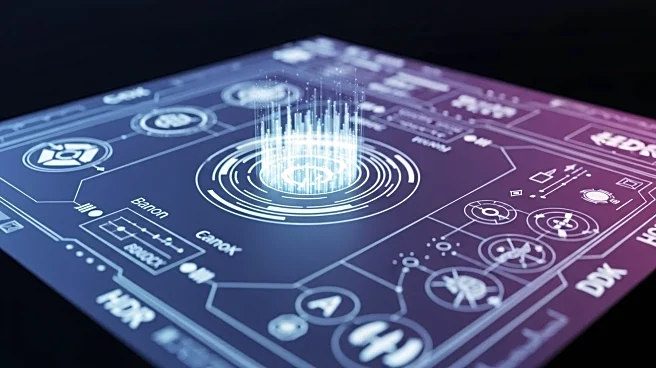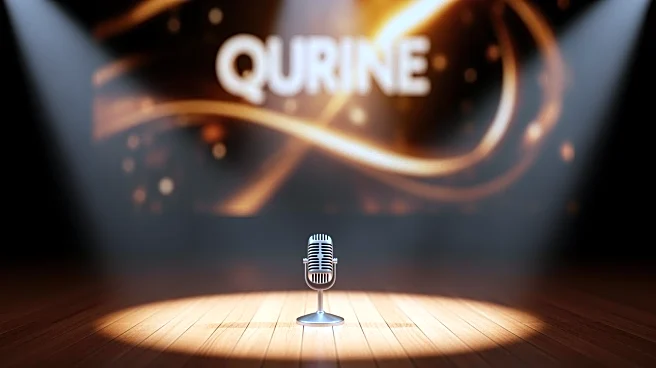What's Happening?
OpenAI has launched Sora, a new app that allows users to create realistic AI-generated videos and audio, quickly becoming the most popular app in the iOS App Store's Photo and Video category. The app uses OpenAI's Sora 2 model to generate high-definition videos from text prompts, enabling users to create lifelike 'cameos' of themselves and others. However, the app has raised significant copyright concerns, as it allows the use of copyrighted characters and content unless copyright holders opt out. This has led to debates about the legality of using copyrighted material in AI-generated outputs.
Why It's Important?
The release of Sora highlights the ongoing challenges of balancing innovation in AI technology with intellectual property rights. The app's ability to generate content featuring copyrighted characters without explicit permission could lead to legal battles and force a reevaluation of copyright laws in the digital age. This development underscores the need for clear guidelines and regulations to protect creators' rights while fostering technological advancement. The situation also raises ethical questions about the potential misuse of AI-generated content, such as deepfakes, which could have broader societal implications.
What's Next?
As OpenAI continues to expand access to Sora, the company may face increased legal scrutiny and pressure to implement more robust copyright protection measures. The tech industry and legal experts will likely engage in discussions to establish clearer frameworks for the use of AI in content creation. Additionally, OpenAI's approach to handling copyright issues could set a precedent for other companies developing similar technologies.









